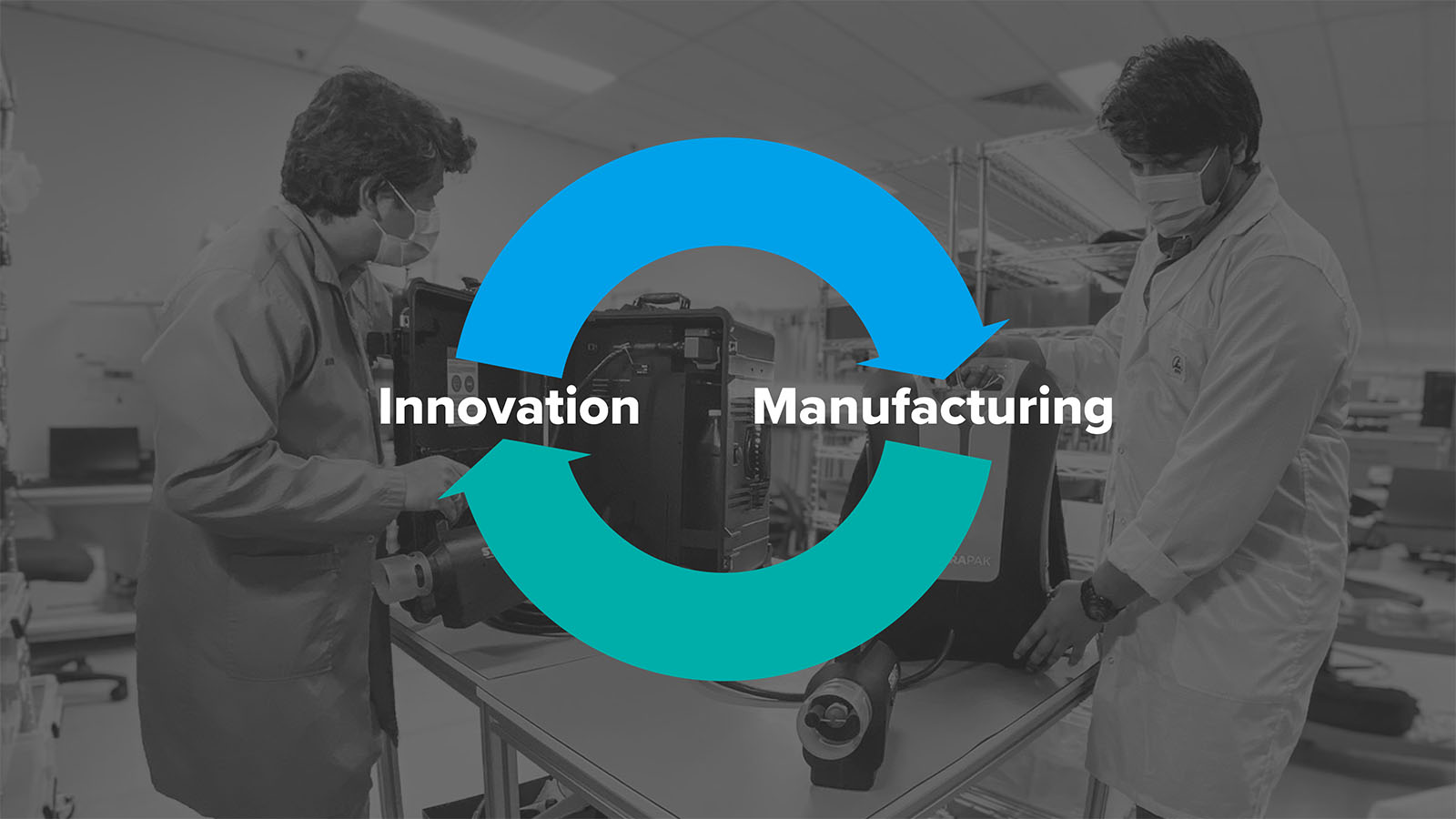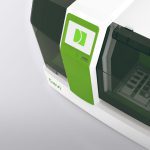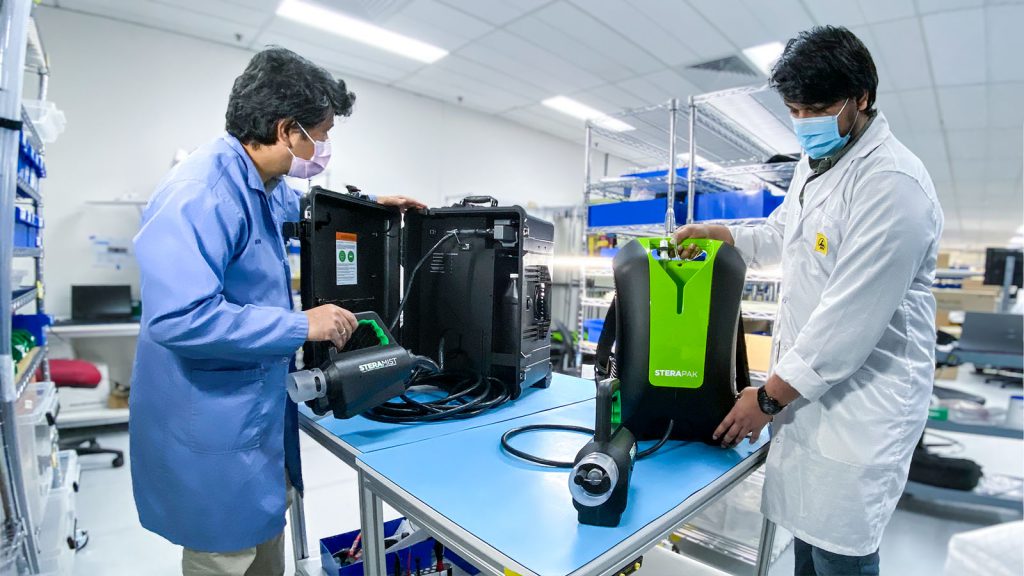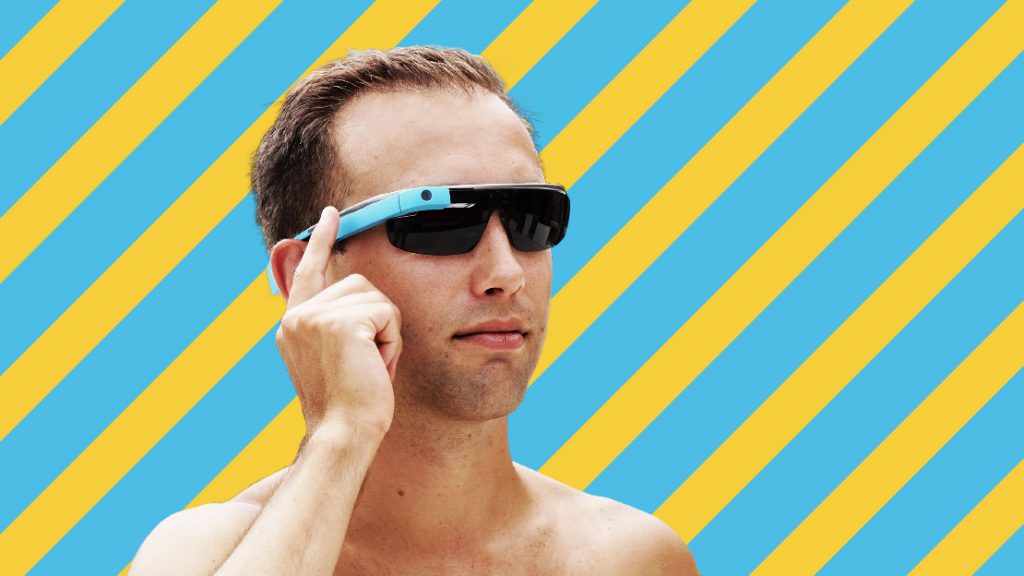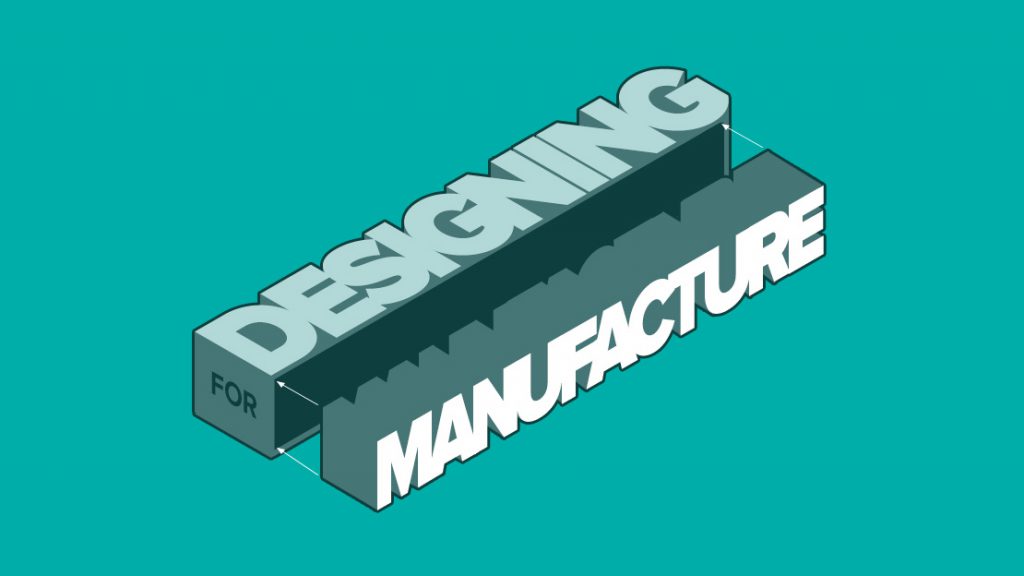
At PI, we don’t see the flow from innovation to manufacturing as a linear process. We see it more as a cyclic relationship. But to achieve this, the traditional barriers between manufacturing and design need to be removed. A developed product should not be seen as the end of the process.
Jim Collins’ Good to Great talks about the flywheel concept, and how when it comes to transformation, there is “no single defining action, no grand program, no one killer innovation, no solitary lucky break, no miracle moment – rather, the process of transformation resembles relentlessly pushing a giant, heavy flywheel, turn upon turn, building momentum until a point of breakthrough and beyond.1”
This is the exact magic I am talking about. And it is the model on which we have built Planet Innovation.
People often think about conventional “innovation” in a linear process like this: design a product; take it through an innovation loop; take it through manufacturing and then commercialize it. Job done. Pretty straight forward.
At PI, we think a little differently.
We use a feedback loop – using the market-informed insights gained from manufacturing to then inform the design of an improved product, an adjacent complementary product or even an innovative, second-generation product. Often these insights are more valuable than the original product’s intellectual property. It is a constant process connecting the manufacturing process with product innovation. It uses the market-pull approach to help develop products where there is a known market for them. Quite simply put, it is manufacturing-led innovation.
At PI we are in the unique position of having product innovation services and manufacturing capabilities under the one roof. This expediates the process and amplifies the connection between the market and the innovation. But even if your business only focuses on one of these aspects, you can practice manufacturing-led innovation by partnering with companies that complement yours. For example, if you are an innovation agency, consider how you might work closely with a manufacturing business.
PI has been practicing this approach since its very first customer, Genea. By working closely with Genea since 2009 we have continued to collaborate with them on a range of new products based on our learnings from the market. Sometimes it has been an incremental improvement of an existing product, while others have been more radical innovation with the introduction of a market disrupting product.
I liken the analogy of ‘manufacturing-led innovation’ to a ‘flywheel’ because it represents the inertia that can be achieved, which results in a constant flow of high-quality, innovative ideas that the market actually wants.

